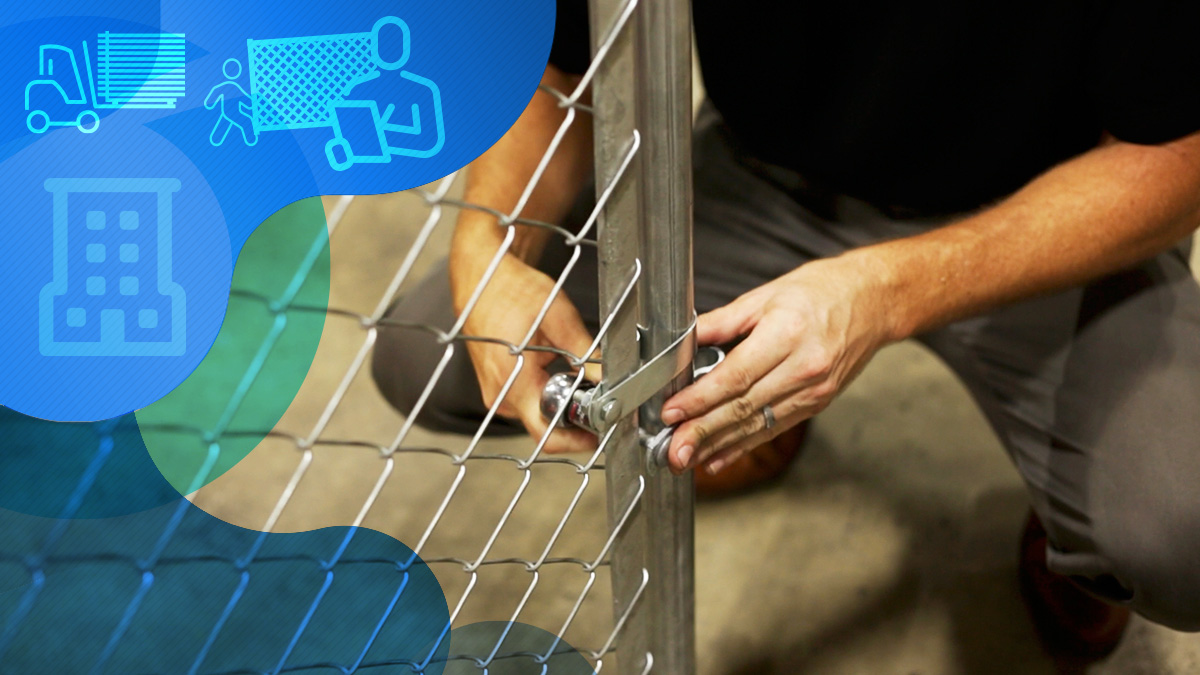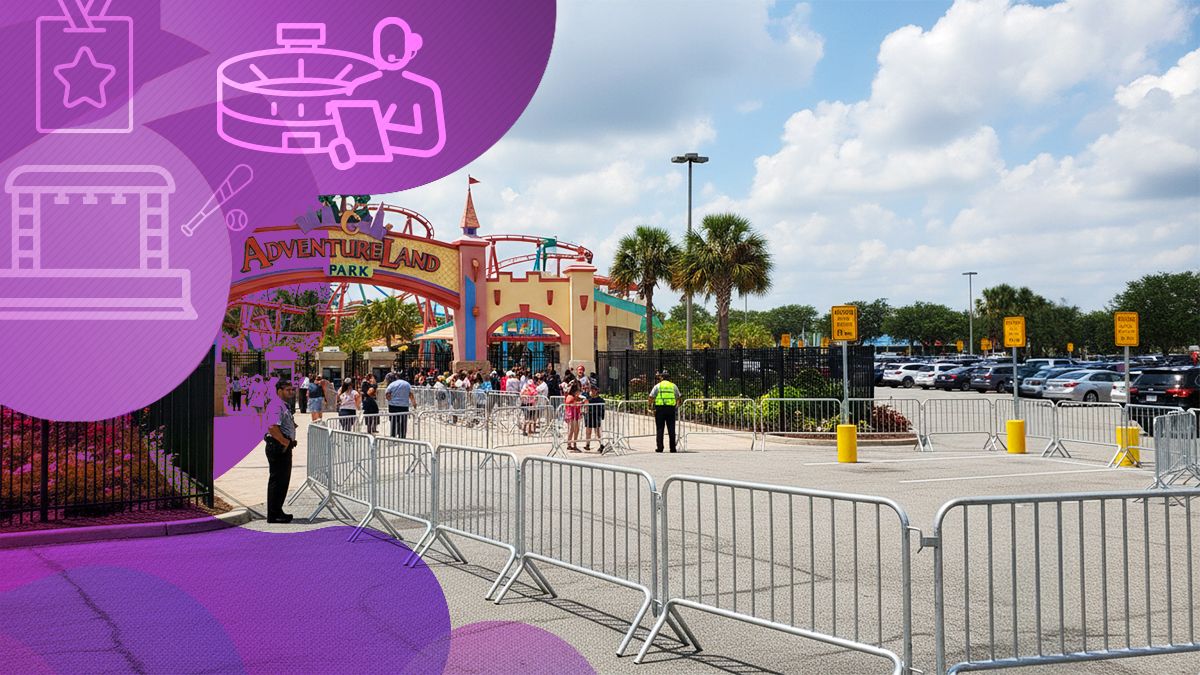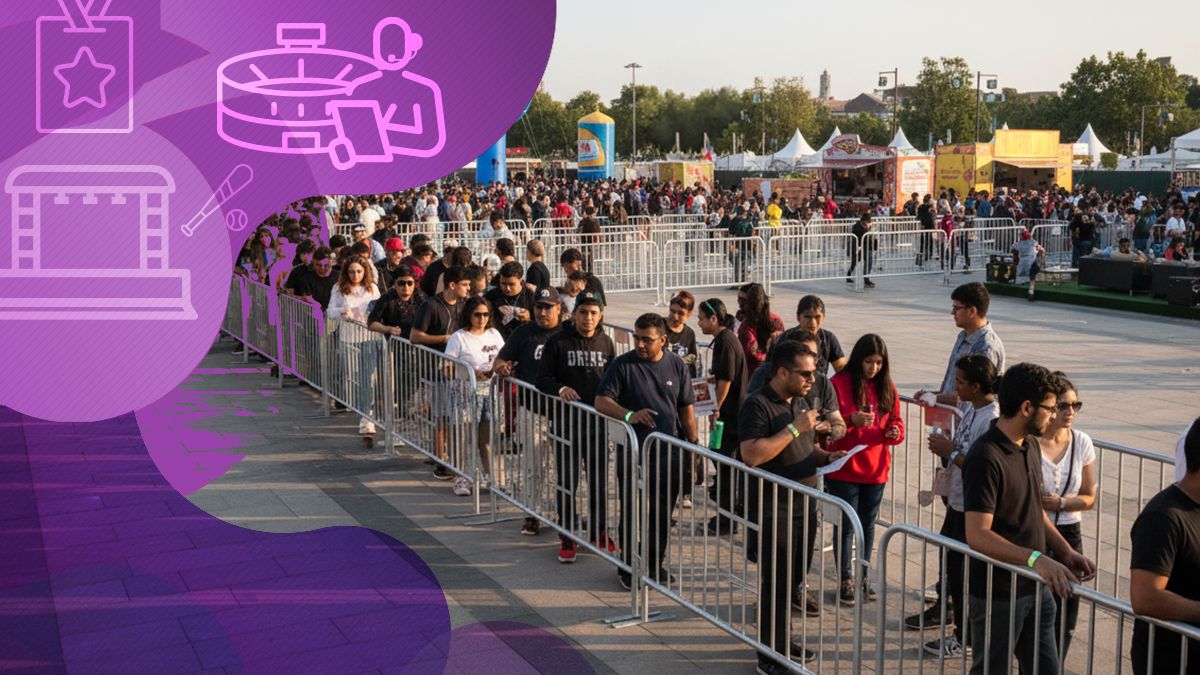How Long Does It Take to Set Up a Temporary Fence Line?
Learn how long it takes to set up a temporary fence line and how to optimize your crew's efficiency for quicker installations.

When it comes to securing job site perimeters, temporary fencing is more than just a good idea. The right options are an essential part of keeping sites secure and preventing the theft of valuable equipment and supplies. Adequate fencing is also a legal requirement, as it helps contain any potential safety hazards and keep passersby out of harm’s way.
Renting the necessary supplies from a temporary fence rental company offers contractors key benefits they wouldn’t otherwise enjoy, including professional assistance to install the fence once it arrives. However, figuring out how best to meet client needs and expectations in this regard can be challenging when your fence rental company is still new.
How long does it take to install a fence? How many team members do you ideally need to do the job correctly? What other factors should fence rental companies consider to ensure a thorough service clients can trust? Let’s dive into everything you need to know to get it right.
Understanding Crew Allocation Based on Perimeter Size
You don’t necessarily need a large, dedicated crew to provide fast, reliable temporary fence installation. Logistically speaking, it only takes two people to deploy the fencing, but it’s important to consider all possible factors when allocating the right number of employees to each project:
- How long will the fence line be?
- How many hours can you assign to the project?
- Are there any additional job site details that might make installation more challenging than average?
Assess the perimeter
The biggest factor to consider when deciding on the right number of team members for an individual installation project is the actual size of the perimeter. That’s ultimately going to dictate how long the installation will take.
It’s also going to factor into how much a rental service should cost, as it affects the number of fence panels you’ll need, and the amount of total manpower involved in the installation.
Check out our post on the topic to learn more about temporary fence rental pricing that’s right for both you and your customers.
Time estimates
The larger the team, the faster the installation will go. For example, a two-person team is generally capable of installing around 250 feet of fencing per hour. That same team can theoretically install 1000 feet of fencing in four hours, and, 2000 feet of fencing, given a full 8-hour day, etc.
The more men you allocate to the job, the more fencing they’ll collectively be able to handle and the faster the work will get done. So, over the course of an 8-hour day, a three-person crew can realistically handle up to 3000 feet of fencing, a four-person crew can handle 4000 feet, and so on.


Additional crew size recommendations
A good rule of thumb to follow is to allocate two workers per 250 feet of fencing per hour. If a job needs to be done more quickly for any reason, the best way to speed things up is to assign more employees to the project.
Here are a few more tips for optimizing operations and ensuring even small crews are as effective as possible:
- Confirm all necessary information with the general contractor when putting the project together and determining the size of your installation crew. In addition to perimeter size, get details about fence entry gates and other access points, nearby streets, etc.
- Supplement individual crews as needed by temporarily reallocating employees from other areas of your business operation.
- Coordinate projects according to location, delivery date, and route. Smart scheduling and planning will help you save on travel costs and time. You can also split up larger installation teams as needed to ensure timely fencing deployment at each site.
Be sure to prepare for the unexpected, as well. For example, bring more fencing panels, bases, anchor weights, and other equipment than you'll think you need.
There’s always the chance a panel or two could arrive damaged or that the client miscalculated the perimeter measurements. Extra supplies help avoid having to dedicate labor, time, and vehicles to return trips for replacements.
It’s important to ensure initial calculations are correct when it comes to the number of panels and other supplies needed to complete a job. Learn more about how to calculate the necessary number of fence panels by reading our article on the subject.


Installing Privacy Screens
Another factor that can affect the number of employees needed to install a particular temporary fence is whether you’ll also be installing a privacy screen for the client. Offering privacy screens as a rental option carries multiple benefits for a growing temporary fence rental company or division:
- You can offer clients a comprehensive range of useful options.
- It’s a way to differentiate your company from competitors who only offer basic fencing.
- It’s a valuable opportunity to upsell customers by offering a service that’s genuinely useful to them.
Clients can benefit from ordering privacy screens with their rental fencing in the following way:
- Privacy screens discourage theft and trespassing by protecting sites from prying eyes.
- Screens help create a clean, professional-looking job site.
The right screens help reduce wind and protect both fencing and sites from the elements.
Custom-printed screens offer construction companies the chance to advertise their services and post important OSHA requirements, etc.
Time and labor requirements
How long does it take to install a fence screen? As with the temporary fencing itself, it ultimately depends on the lenght of the perimeter and how many team members work on the installation.
On average, a single crew member can install between 100-150 feet of privacy screening per hour. A two-person crew can handle between 200-300 feet, and a three-person crew can manage between 300-450 feet. However, it’s worth noting that privacy screen installations go best when there are at least two people on the job, as they can work together to position and secure the screen as they move along the fence line.


When planning temporary fence instalaltions that include privacy screen, for best results you must factor in at least one additional hour and two employees’ labor per 200-300 feet of fencing. Be sure to double-check measurements and other perimeter requirements when determining how much screening to send to the job site. Include some extra, just in case.
Training and Preparation
Installation teams that are well-trained and thoroughly prepared to handle any possible situation while on the job are better equipped to complete even unusal tasks to perfection.
Ensure all team members receive training on proper fencing installation and related protocols, including those who aren’t full-time installation team members. This way, everyone is prepared to fill a spot on a fencing installation crew if necessary. Understanding the installation process also helps your entire team better explain options to clients and field questions from potential new customers.
Make sure your training process also covers handeling extenuating circumstances, as well. Are crew members capable of managing perimeters that are bigger, smaller, or simply different than expected? Does each crew member understand how to install different types of fencing, as well as how to handle tasks on their own, if needed?
Take the next step towards ensuring a well-trained installation team that’s ready for absolutely anything by checking out our comprehensive guide on how to install chain link fence.
Trend now

Theme Park Safety: Avoiding Fines and Accidents with Crowd Control
Learn how crowd control products help keep theme parks safe, avoid accidents, and improve operations. Explore SONCO’s solutions for better crowd management.

Anti Scale Fence for Temporary High-Security Needs
Anti scale fence designed for temporary high-security perimeters, crowd control, protests, and emergency response where standard fencing falls short.

Why Bike Rack Barricades Are the Go-To Choice for Crowd Control
Explore why bike rack barricades are the go-to for crowd control. Learn how these versatile, durable barriers keep events, construction sites, and more organized.





